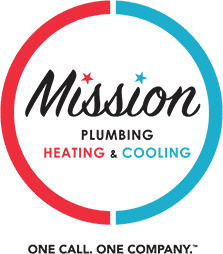Finding the Correct Size A/C Unit for Your House
If you’re considering installing or upgrading your A/C, choosing the right size unit for your home can be a tricky task. There are many factors to consider when selecting an air conditioner, including the size of your house and the number of rooms you need to cool. And the wrong-sized system could result in inefficient cooling or inadequate coverage, leaving some areas too hot and others too cold.
In this blog post, we’ll discuss how to determine the right size A/C unit for your space so that you can stay comfortable all summer long!
Think About the Setup, Size, and Location of Your Home
First, consider what makes your home unique. Older homes, for instance, don’t have ductwork and will therefore need ductless A/C systems that cool individual rooms—you’ll have to think about which rooms are the most important to keep cool, and if any of that cool air can more easily flow to adjacent rooms, for example.
Or you may have a guest space above the garage that is only used a few times a year; in that case, installing separate systems can help save energy by allowing you to target specific areas when needed.
And, of course, you need to consider the size of your home and where you live. If your house is 1,400 square feet and you live in the southernmost U.S., for instance, you may need a 2.5-ton air conditioner to feel comfortable. But if you live in Minnesota in a house of the same size, a 1.5-ton or 2-ton air conditioner may suit you just fine.
What Does BTU Mean?
When selecting an air conditioner for your home, it’s essential to understand what BTU ratings mean. BTU stands for British Thermal Unit and refers to the amount of cooling power an air conditioner can provide.
Generally speaking, the higher the BTU rating, the more cooling power the unit can provide. This is especially important to consider when choosing an air conditioner for larger homes or homes in warm climates.
What Does A/C Tonnage Mean?
The other number you’ll come across when evaluating A/C systems is tonnage, which refers to the amount of energy needed to produce the cooling power. For convenience’s sake, remember that 1 ton is equal to 12,000 BTUs.
What Size A/C Unit Do I Need?
Generally speaking, homes in warmer parts of the country that are less than 1,000 square feet would be fine with a 1.5-ton system. Homes in the colder parts of the U.S. could be a little larger than 1,000 square feet and still use the same size system.
A good rule of thumb to remember is that, for every 200 - 400 additional square feet beyond 1,000, increase the tons needed by one half. When in doubt, consult an HVAC professional trained in air conditioning installation.
Can My Electrical System Handle My A/C?
Figuring out if your home’s electrical system can support a new or upgraded central air conditioning system is critical.
First, check the circuit breaker that you plan to use—it needs to be rated for at least 20 amps and compatible with the type of wiring in your home. Larger units may need breakers rated up to 50 amps or more. You may even need to upgrade your main service panel. Then consider the wattage of your unit, which can vary depending on its size and all its side components.
However, the best way to assess your electrical system is to consult a local electrician who can identify any potential risks when adding air conditioning and recommend if upgrades are needed before installation. You want to prevent any potentially serious issues, so don’t skip this step!
Get Professional Advice from a Trusted HVAC Technician
If you live in the Kansas City area and are thinking about upgrading or installing a new central air system, call Mission Plumbing, Heating & Cooling at (913) 347-5425 or request service today. We also provide full A/C repair and maintenance services.



